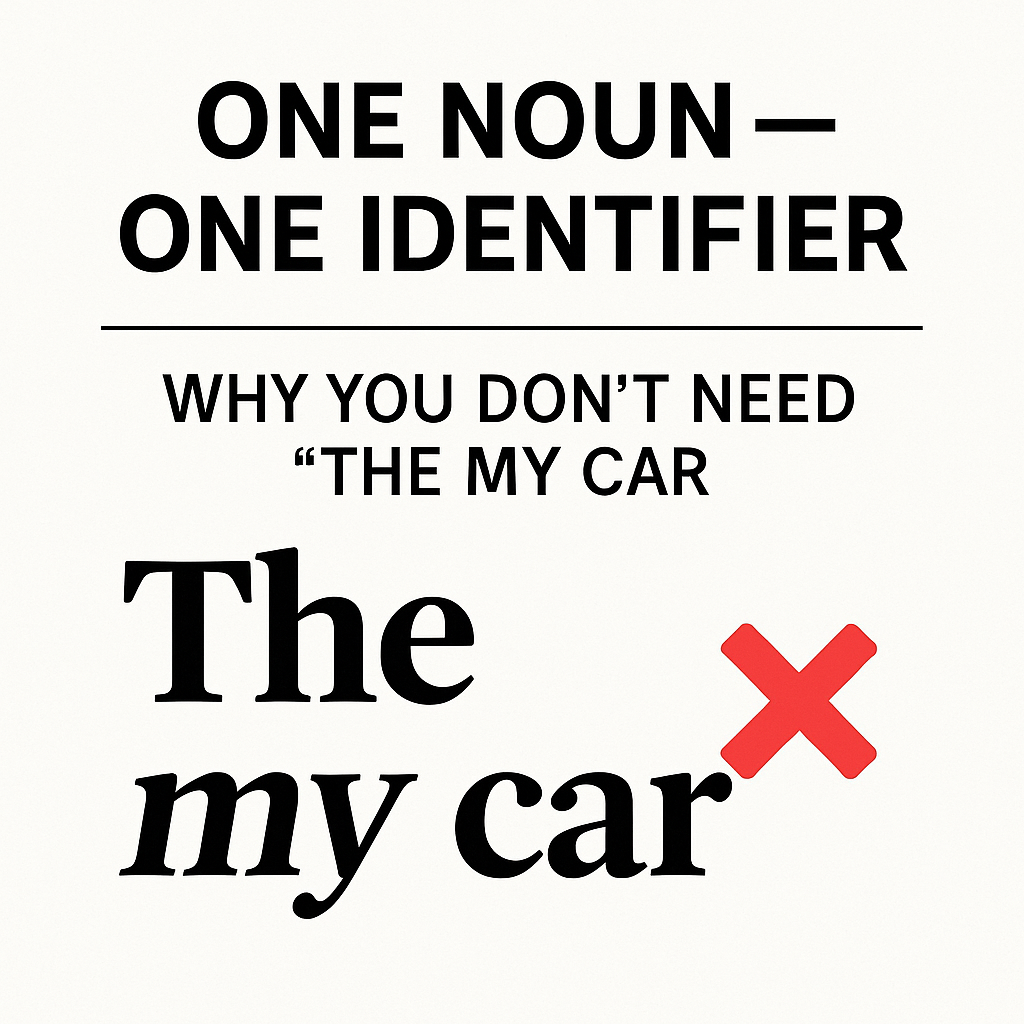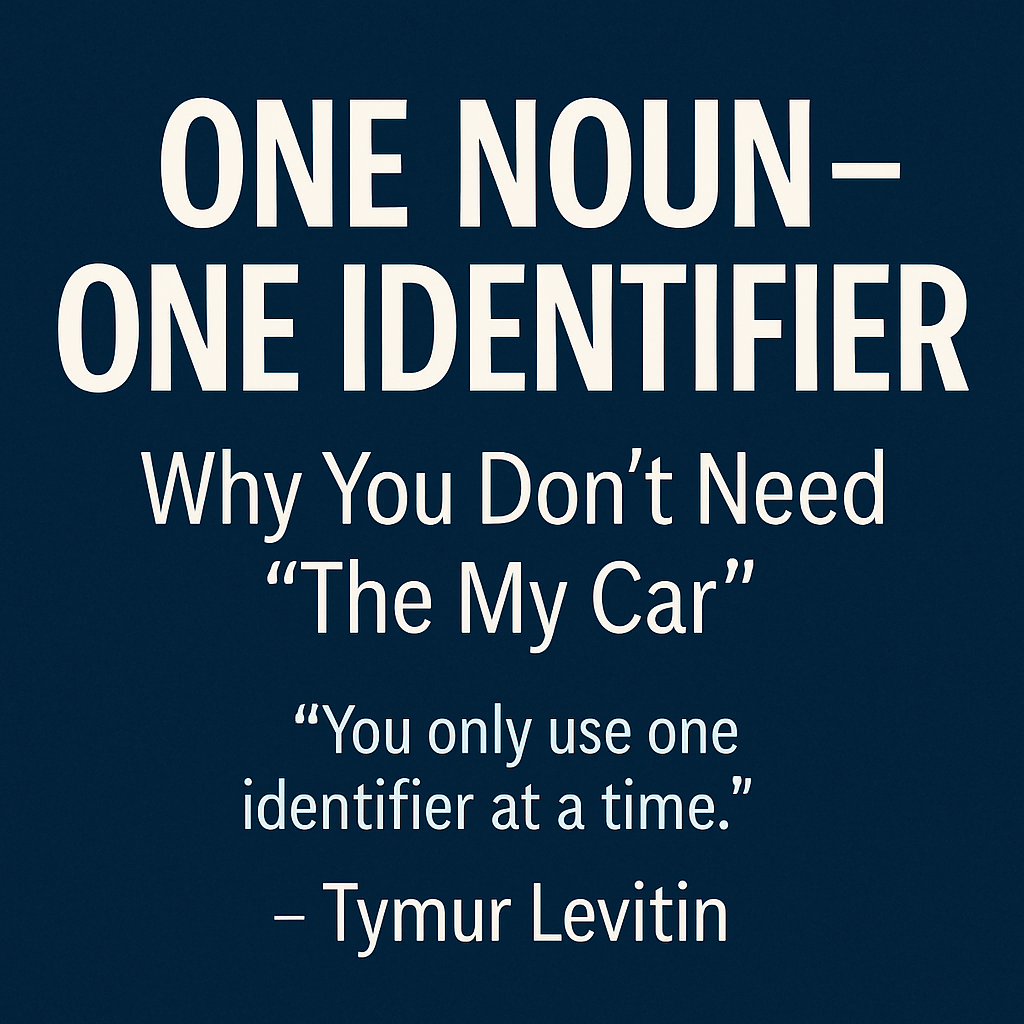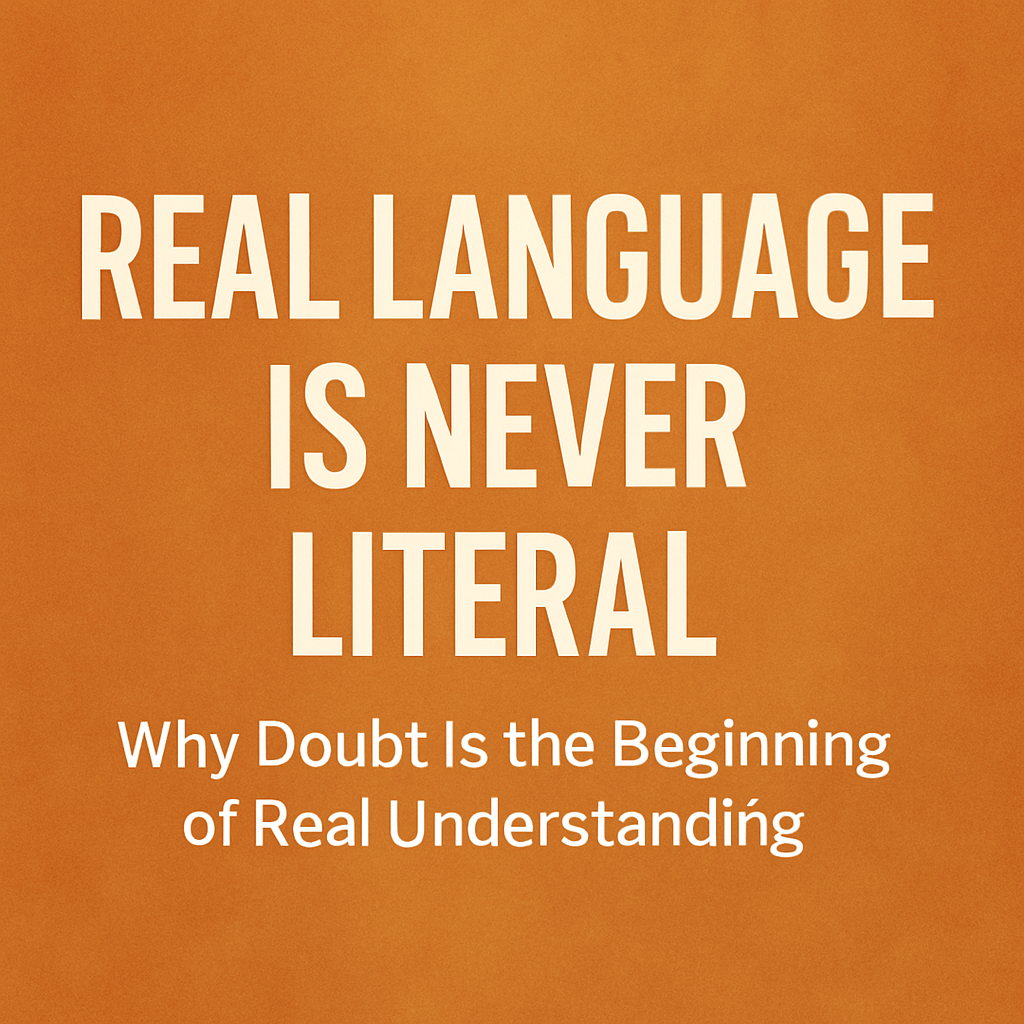Why You Don’t Need “The My Car”
You already know from our last article that an article is one way to define a noun.
But what happens when we try to use dwa ways at once?
That’s when English pushes back — and logic takes over.
The Rule That Isn’t a Rule
Some students ask:
“Why can’t I say the my house?”
“Why is the John wrong?”
The answer is simple: because it’s unnecessary.
Languages are efficient. They don’t let you overload a noun with more identification than needed.
You need one identifier per noun. No more.
The rest is noise — and the brain automatically rejects it.
Determiners Compete — Not Cooperate
Let’s say you want to talk about your car.
You have options:
- the car — a specific one
- my car — your car
- this car — one close to you
- John’s car — his
But you don’t say:
- the my car
- this my car
- the John’s car
Because your listener would stop and wonder:
“Wait… which one do you want me to focus on?”
English Chooses One Path to Identification
The language gives you several tools to define a noun:
- article (a / the)
- possessive (my / your / his)
- demonstrative (this / that)
- proper name (John / London)
- adjective (red / broken)
But it asks you to pick only one.
Each of them does the same job — so using two is like repeating yourself.
Grammar as Cognitive Efficiency
This isn’t about memorizing restrictions.
It’s about recognizing that language mirrors how we think.
You don’t say:
“the my house” — because your brain already registered “my” as the definer.
You don’t say:
“the John” — because names don’t need clarification.
English isn’t punishing you. It’s saving your energy.

Related posts from our blog
→ What Is an Article, Really?
→ Why ‘a apples’ Doesn’t Exist
→ Dlaczego nauka angielskiego z prywatnym korepetytorem to wciąż najmądrzejszy sposób?
→ Bariera językowa nie dotyczy języka
O autorze
Tymur Levitin — founder, director, and senior instructor at Levitin Language School / Start Language School by Tymur Levitin
🔗 Poznaj autora →
© Tymur Levitin. Wszelkie prawa zastrzeżone.
























